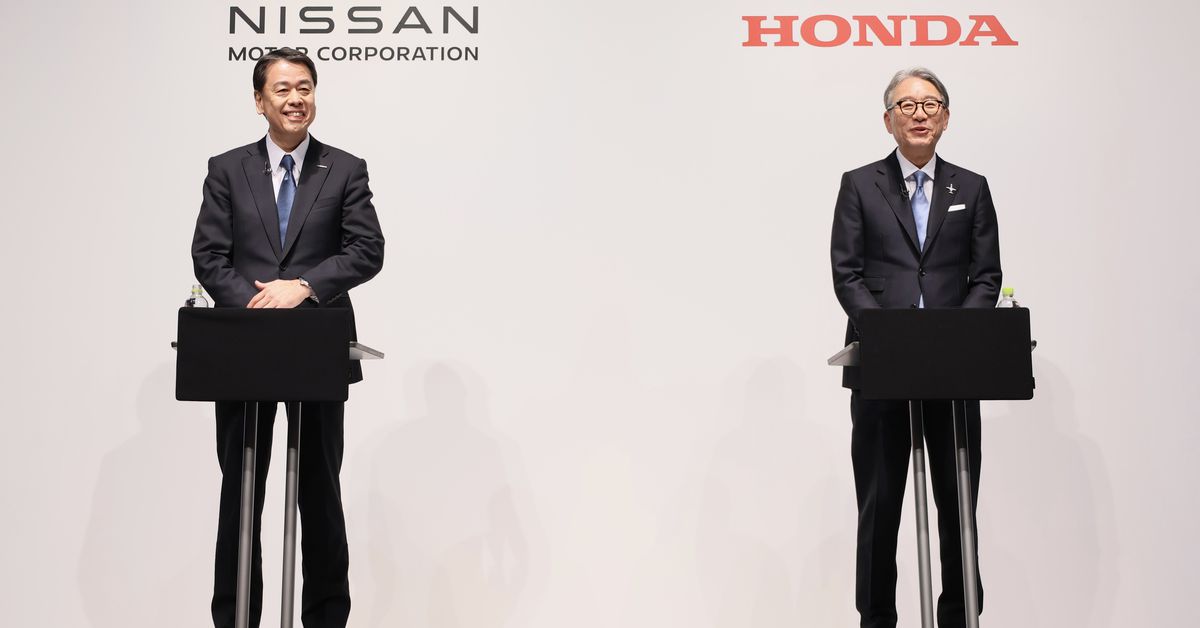In a move that could significantly impact the global automotive industry, Japanese automakers Honda and Nissan are reportedly in talks to merge. The proposed merger aims to help the two companies better compete with electric vehicle (EV) manufacturers such as Tesla, BYD, and others.
Background on the Proposed Merger
According to anonymous sources, Honda and Nissan have discussed signing a memorandum of understanding that outlines plans to split equity into a new holding company from which both will do business. This move is similar to how various Japanese electronics brands banded together in the past, such as Konica Minolta and JVCKenwood.
Joint Development of EV Technology and Software
It’s worth noting that Honda and Nissan have already been working together on developing EV technology and software. In fact, they had invited Mitsubishi to join this effort as well. This joint development is a significant step towards creating more competitive and innovative products in the EV market.
Challenges Facing Nissan
While both companies are facing challenges in the EV market, Nissan’s situation is particularly dire. According to Reuters, Nissan’s net earnings in the middle of 2024 were down more than 90 percent year over year. Moreover, the company had to cut its annual operating profit forecast by nearly 70 percent.
In response to these challenges, Nissan and Honda released statements to Reuters saying: "As announced in March of this year, Honda and Nissan are exploring various possibilities for future collaboration, leveraging each other’s strengths."
Market Trends and Competition
The EV market has slowed down worldwide, but Chinese brands are outpacing US, European, and Japanese manufacturers. According to Bloomberg, Japanese automakers are losing big market share in east and southeast Asia from China to Indonesia.
Honda is preparing to launch its new Honda Zero EV platform next year, which is expected to be a major player in the EV market. Meanwhile, Nissan has struggled to regain its pioneering lead with the 2011 Leaf and has only released one other EV, the Ariya.
Hybrid Models vs. Full EVs
Interestingly, both companies have added more hybrid models than full EVs to their product roadmaps. This year, Nissan said it would have 16 "electrified" models by 2026, while Honda is looking to launch a really cool hybrid Prelude sports coupe next year.
Why a Merger Makes Sense
A merger between Honda and Nissan makes sense given the current market trends and challenges facing both companies. By joining forces, they can pool their resources, expertise, and research to create more competitive products in the EV market.
Moreover, a merger would allow them to better compete with Chinese brands such as BYD and Tesla, which have been rapidly gaining market share in recent years.
Conclusion
The proposed merger between Honda and Nissan is a significant development in the global automotive industry. While there are challenges ahead, a merger could help both companies better compete with EV manufacturers and regain their footing in the market.
Only time will tell if this merger becomes a reality, but one thing is certain: the automotive industry is undergoing rapid changes, and companies that adapt quickly to these changes will be best positioned for success in the future.
Key Statistics
- Nissan’s net earnings in 2024 were down more than 90 percent year over year.
- Honda has launched its new Honda Zero EV platform, which is expected to be a major player in the EV market.
- Japanese automakers are losing big market share in east and southeast Asia from China to Indonesia.
Sources
- Reuters: Nissan’s net earnings down more than 90% yoy
- Bloomberg: Japanese automakers losing market share in east and southeast Asia
- Nikkei Asia: Honda and Nissan in talks to merge
- Honda and Nissan statements to Reuters
